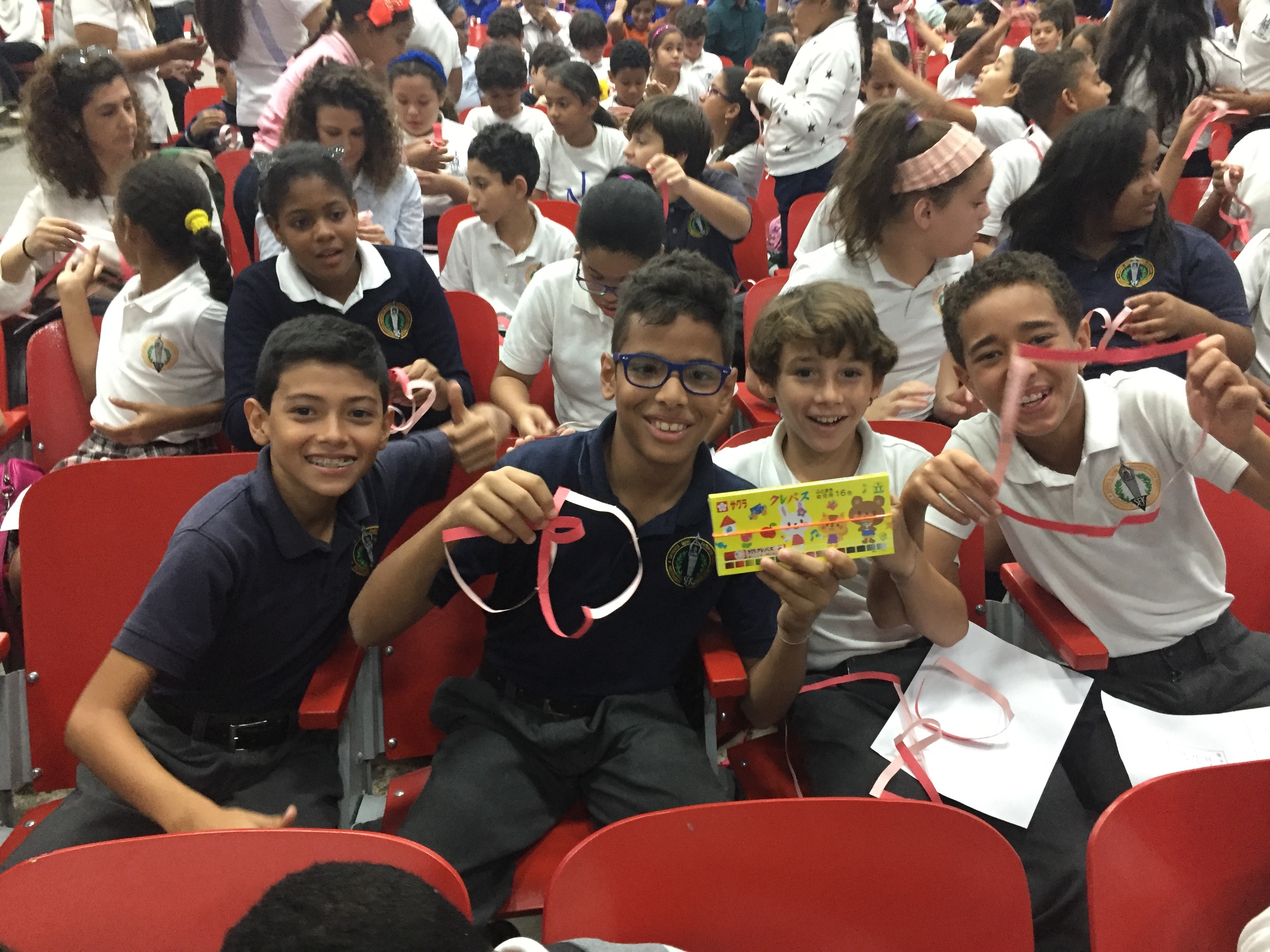According to quality of life research conducted by the Organisation for Economic Co-operation and Development (OECD), the Dominican Republic is the country in the world with the highest percentage of 15-year-olds saying that they are satisfied with their lives. The Dominican Republic is a small island nation located near Cuba in the Caribbean.
One of the key policies of Dominican President Danilo Medina was “human resources development, along with improving the quality of education and educators.” The Japanese ambassador to the Dominican Republic, together with the Japan International Cooperation Agency (JICA), launched a mathematics support project.
One of the participants facilitating this project is the specially appointed Distinguished Professor Jin Akiyama from Tokyo University of Science.
The mathematics support project was begun in 2017 according to a three year plan. The objective for the first year was to instill an interest in mathematics among as many as possible by communicating both the joy and utility of mathematics. Professor Akiyama produced works to be exhibited at the museum of mathematics to be constructed in the capital, as well as prepared the explanations in Spanish to accompany those works, and he delivered a variety of mathematics lectures.
Professor Akiyama arrived in the Dominican Republic on November 24, 2017. Over the next two weeks, he traveled around to the museum of mathematics, the Santo Domingo Institute of Technology, the Autonomous University of Santo Domingo and other institutions, performing teacher training and delivering lectures and seminars for students. Professor Akiyama took his mathematics shows all over, including to university lecture halls packed with a dozen bus-loads of local elementary and junior high school students, and, everywhere he went, his presentations attracted standing-room-only crowds.
The student participants were all excited and engaged, as evidenced by the fact that whenever Professor Akiyama threw out a question, nearly every student in attendance would raise their hand to answer. And even if their answers were wrong, this in no way dimmed the students’ enthusiasm.
The students’ demeanor gave Professor Akiyama a sense of the relaxed classroom environment fostered by teachers and adults in the Dominican Republic.

Of his experience with the mathematics support projects, Professor Akiyama said that his interactions with project participants from both countries, as well as with the residents of the Dominican Republic, taught him a great deal and gave him a broader perspective.
More than anything, it reinforced for him the importance of ensuring that children are born into a welcoming and nurturing society.
They need to have toys and candy and clothes. But before any of that, Professor Akiyama understood that their happiness comes from knowing that they are accepted and loved unconditionally for who they are.
Education in math and arithmetic is taken for granted in Japan. For Professor Akiyama, this project served to remind him anew of the significance and purpose of mathematical education. He will continue contributing to projects that use mathematics as a tool for fostering happiness in people.
■ Main research content